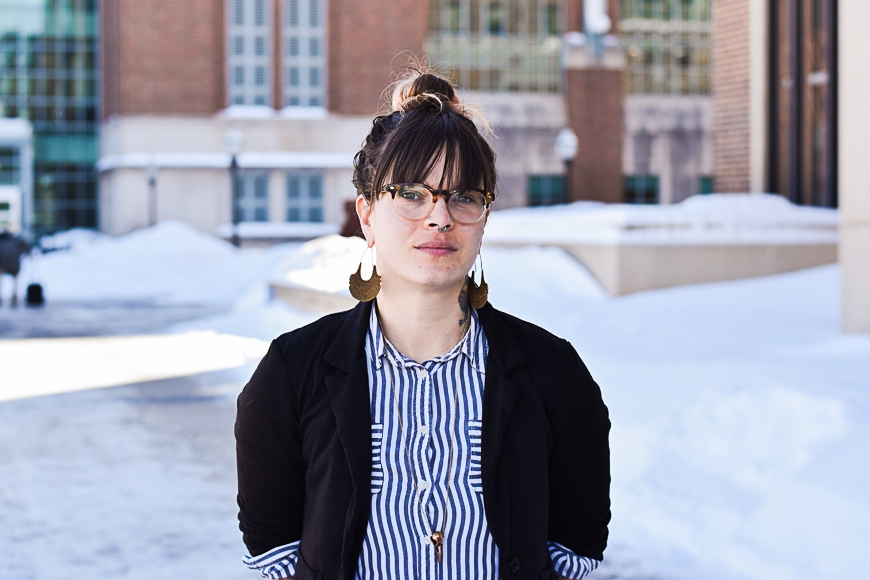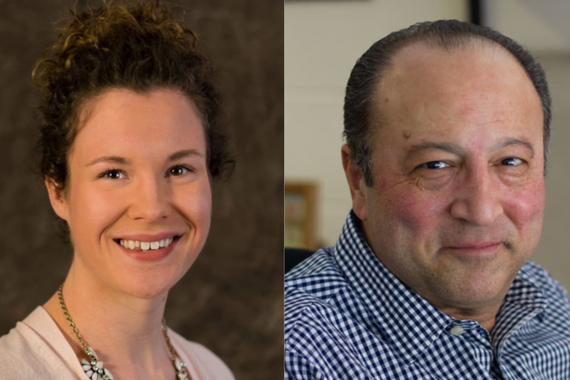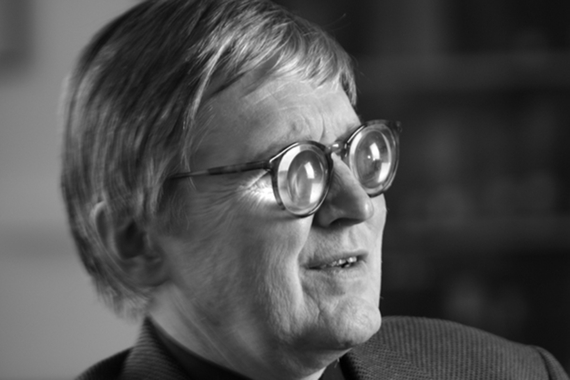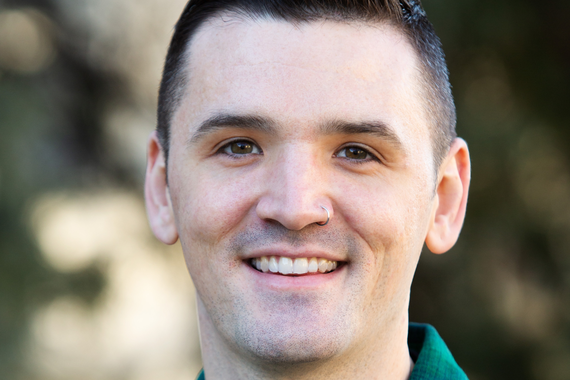Ready for Research
Each student has their own path to achieving academic goals, and alumna Carissa Coudray (BA ‘18, psychology) is no different. For Coudray, education didn’t end four years after high school—it’s been a lifelong adventure.
Before arriving at the University, she attended Dunwoody College. She started traveling after her time at Dunwoody and lived in the Netherlands before returning to the United States for the birth of her daughter. Coudray decided to go back to school in 2014 at Minneapolis Community and Technical College. While at Dunwoody, she studied automotive technology, and in her time at MCTC, she took courses to help her transfer to the University. Now, she works with a different kind of machine: the mind.
A Personal Journey
Higher education was always Coudray’s ultimate goal.
In 2016, Coudray transferred to the U with her mind set on psychology. “I declared my major the day that I registered for classes. It’s a very intentional track, I think in part because I was about 33 years old when I went back to school,” Coudray says.
After immediately declaring, Coudray sought out opportunities to further push herself. “I knew that my intention was to ultimately get a PhD in psychology and to be a licensed practitioner...I got involved in research through the psych department right away because I knew that to accomplish what I wanted, I needed to get research experience.” Coudray explains.
Gaining Research Experience
Coudray worked on three different research projects in two years. She joined Professor Stephen Engel’s team in the Vision and Imaging Lab out of the Cognitive and Brain Science program. They are attempting to understand fusional limits, which is the brain’s ability to take two images, one seen by each eye, and combine them.
Next, Coudray moved to Professor Patricia Frazier’ Stress and Trauma Lab to explore stress management reduction techniques. For this particular project, Coudray had the opportunity to begin her own research work. “The distinction is that in Patricia’s lab, undergraduates are expected to be producing their own research. So instead of only working with a grad student...and fulfilling duties relative to that project, students...are also doing their own research,” Coudray explains.
Finally, she worked in the TRiCAM Lab with Professor Angus MacDonald doing schizophrenia research to fulfill an honors lab experience requirement. In each of her research opportunities, Coudray’s time in the lab allowed her to learn and observe various psychological research methods firsthand.
Graduation to the Lab
Since graduating in 2018, Coudray has been working as a research professional at Minnesota Center for Chemical and Mental Health (MNCAMH), a research institute located on the University of Minnesota St. Paul campus. At MNCAMH, she works on early intervention for people diagnosed with a schizophrenia spectrum disorder. Specifically, she focuses on first-episode psychosis, which is when a person first begins to show symptoms of a schizophrenia spectrum disorder.
“Research overwhelmingly indicates that the faster you identify that person is experiencing the symptoms of a schizophrenia spectrum disorder and get them into treatment, the better their prognosis is long term,” Coudray explains of her applied research.
Coudray is also in the final stages of publishing her honors thesis examining moderators of the efficacy of a web-based stress management intervention for college students. Her research examines for whom these types of interventions are most effective and thus how to best integrate them into campus mental health services. She explains the importance of tailoring mental health resources for people struggling with mental health in order to broaden the reach and reduce barriers to care. The thesis has been accepted by the APA Journal of Counseling Psychology.
Looking to the Future
Currently, in the process of applying to counseling PhD and PsyD programs, Coudray remains focused on achieving the goals she has always established for herself. At the same time, she has strong advice for psychology students looking at going into research at the University: "The most important bit of advice I wish someone had given me is to be kind to yourself, don’t take yourself so seriously, and remember to breathe.“
This story was written by an undergraduate student in CLA.



